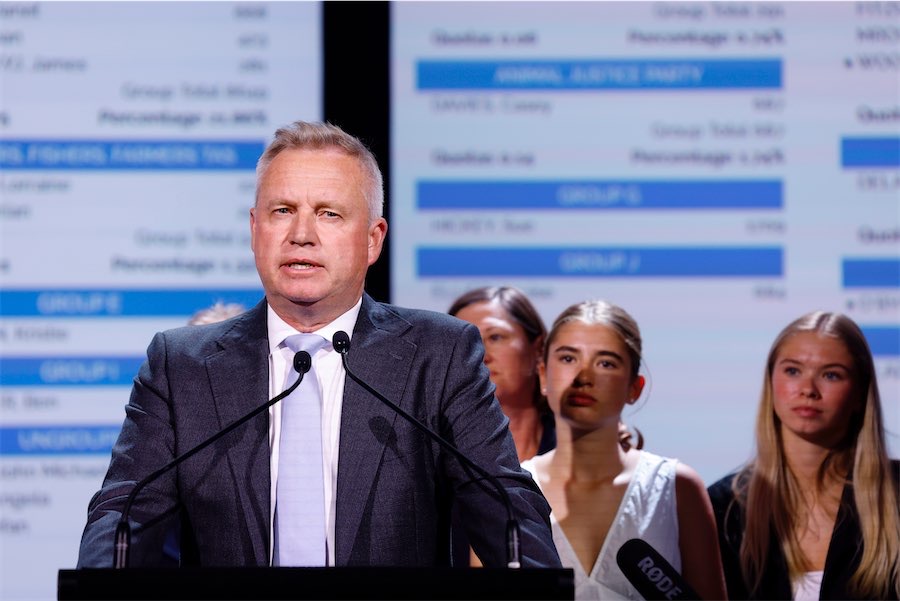
“When Canberrans go to the polls in October, it is worth ensuring that the ACT has the most accountable government possible. A really strong cross bench will deliver this outcome,” writes political columnist MICHAEL MOORE.
A “hung parliament” is the term that the major parties love to use. It is deliberately pejorative.

The major parties do not like the notion of answering to the parliament to the extent required through a “minority government”.
The view of Tasmanian Premier Jeremy Rockliff illustrates the point. In calling the election a year early, argued “minority government is destabilising, it destroys confidence, it is bad for our state and it is bad for Tasmanians”. Tasmanian voters rejected this notion.
The people of Tasmania disagreed and delivered the very thing in the most recent election. The Westminster system of government will operate more effectively with much more accountability.
The major parties work towards the winner-takes-all perspective. Even in opposition, they effectively wait their turn hoping they will not have to negotiate every piece of legislation with a range of members of the parliament.
Accountability, and much more effective engagement of all members of the parliament comes when the voters support a strong crossbench that will not go into coalition with one of the major parties.
One of the arguments put forward by major parties to discourage voting for independents and small parties is that a hung parliament puts too much power in the hands of a small number of people on the cross benches. Not so! Their own actions deliver that power to the cross benches.
The option that governments in minority always have is to seek support from the major opposition party. When this happens, all members of the parliament have an equal and effective vote on issues. This option can effectively neutralise any position taken by cross bench members.
In a similar way, opposition parties have the option of seeking support from either the government or the cross bench members to drive any change that they see as appropriate for the community. This can take the form of motions put to the parliament, review of legislation or the introduction of their own legislation.
Minority governments are entitled to know that they have support for the budget and support if a no-confidence motion is put regarding the leader – whether it be a premier, prime minister or chief minister.
Minority governments do mean a significant shift in power from the government to the parliament. However, going into government as a minority does require some substantial security.
In the Westminster system, the government is accountable for the money. Therefore, it is appropriate that the government has a guarantee from those backing the minority that they will support the government’s budget.
The second issue is stability. Ironically, leaders negotiating to establish a minority government always seek to have a guarantee of support in a no-confidence motion. Ironic, because there have been so many cases in recent times where a prime minister loses the confidence of his or her own party.
Over the last decade, majority government has hardly been a recipe for stability.
Tasmanians have delivered a series of clear messages to their members of parliament. Calling an early election is not such a sensible idea. The Liberal premier did not like running a minority government even though his majority was lost when just one of his own Liberal members defected to the cross bench. His attempt to regain a majority government delivered a swing of around 12 per cent against the Liberals.
His other mistake was to revert to a much bigger Legislative Assembly with the 2022 legislation to return to a 35-member parliament from the 25-member one that was established in 1998.
In contrast to the 25 politicians in the ACT, Tasmania now has 35 members in their House of Assembly and 15 members in their Legislative Council.
On top of this Tasmania (with a population of 540,000 compared to the ACT’s 430,000), has five Federal MPs and 12 Senators along with 29 local councils – each with between seven and 12 councillors.
The ACT is not over governed. It has a much more efficient governance system with just 25 members of the Legislative Assembly with responsibility for local as well as state/territory functions. Canberrans also have three MPs and two Senators. Just 30 politicians altogether.
When Canberrans go to the polls in October, it is worth ensuring that the ACT has the most accountable government possible. A really strong cross bench will deliver this outcome.
Michael Moore is a former member of the ACT Legislative Assembly and an independent minister for health. He has been a political columnist with “CityNews” since 2006.
Who can be trusted?
In a world of spin and confusion, there’s never been a more important time to support independent journalism in Canberra.
If you trust our work online and want to enforce the power of independent voices, I invite you to make a small contribution.
Every dollar of support is invested back into our journalism to help keep citynews.com.au strong and free.
Thank you,
Ian Meikle, editor





Leave a Reply